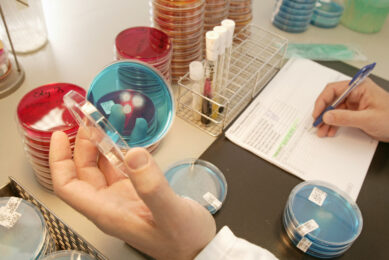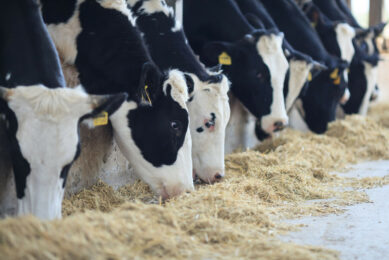Half of China’s antibiotics are fed to animals
Chinese farmers mix antibiotics mostly by hand in the animal feed. Antibiotic resistance in the Chinese population has increased dramatically in recent years.
In Guangdong province a little girl was born in the 25th week of pregnancy and weighing only 650 grams. Surprisingly she was already resistant to seven types of antibiotics. The treatment of the little girl was therefore a special challenge for physicians, Chin’s People’s Daily reported.
It is suggested that the cause of this antibiotic resistance is because the mother during her pregnancy ate meat and eggs that contained large amounts of antibiotic residues.
Administration problem
A survey by the Chinese Academy of Social Sciences revealed that industrial feed often contains large amounts of antibiotics, hormones and other drugs.
In the provinces of Shandong and Liaoning livestock and poultry farmers remarkably often feed these medicated feeds to protect the animals from possible infections and diseases.
About 50% of the surveyed farmers said they have mixed antibiotics and drugs in the feed, said Xiaoqing Yin, a research member of the academy.
The farmers mixed the antibiotics simply by feel, since most of them lack a more accurate understanding of a possible dose. The amounts so quickly exceed the approved standard for antibiotics, the Peoples Daily said.
An industry expert warned that food animals are usually fed with too many antibiotics.
Antibiotic waste
"In some Western countries in the 1960s, pigs were fed with antibiotics waste to accelerate the growth of the animals. Later these wastes were used as feed additives in the industry," said Xie Zhongquan, chairman of the Beijing Feed Industry Association.
”However, these artificial additives are not degradable and are stored in the carcasses as antibiotic residues."
Guanghai Qi, a researcher at the Chinese Academy of Agricultural Sciences, said the correct use and proper dosing of antibiotics in animals can accelerate the growth of the animals and protect them from infection.
"But the use of excessive doses or inappropriate medications can cause drug residues in animals and endanger the health of consumers of animal products," he said.
Resistance in people
China annually produces 210,000 tons of crude antibiotics. More than 46% of production is used in the livestock industry.
This has led to an antibiotic resistance in people in China that is worse than in other countries, said Professor Xiao Yonghong, who is leading an expert group within the Department of Clinical Pharmacy, Beijing University.











